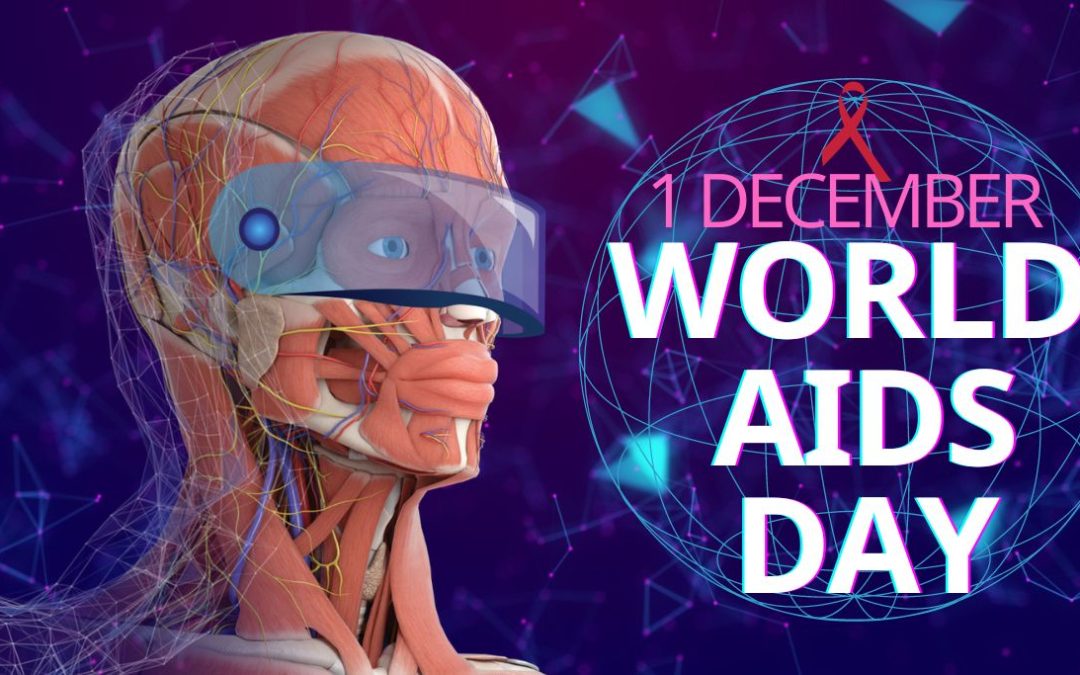World AIDS Day
The 1st of December has been established as World AIDS Day, since 1988. This international day is dedicated to raising awareness of the AIDS pandemic caused by the spread of HIV infection. Moreover, December is HIV/AIDS Awareness Month.
This year’s theme for World AIDS Day is “Putting Ourselves to the Test: Achieving Equity to End HIV”. In this regard, let’s remind everyone how important the following aspects are: getting tested, improving education, raising awareness, and fighting prejudice to help those who are deeply affected.
HIV (Human Immunodeficiency Virus) is a virus that damages the immune system cells. Consequently, the virus also, depresses the ability of the body, to fight infections and diseases.
AIDS (Acquired Immune Deficiency Syndrome) is the name used to describe the effects of the HIV virus. More specifically, the number of potentially life-threatening infections and illnesses that can occur, after the HIV virus has severely damaged the immune system.
HIV is not passed on easily from one person to another. The virus does not spread through the air like cold and flu viruses. Instead, HIV lives in the blood and in some body fluids. So, in order to get HIV, one of the following fluids, from someone with HI, has to get into your blood.
The body fluids that contain enough HIV to infect someone:
- semen
- vaginal fluids, including menstrual blood
- breast milk
- blood
- lining inside the anus
Other body fluids, like saliva, sweat or urine, do not contain enough of the virus to infect another people.
The main ways the virus enters the bloodstream are:
- by injecting into the bloodstream with needles or injecting equipment that’s been shared with other people
- through the thin lining on or inside the anus, vagina, and genitals
- through the thin lining of the mouth and eyes
- through cuts and sores in the skin
Below are the three stages of HIV and some of the symptoms people may experience:
Stage 1: Acute HIV Infection
Within 2 to 4 weeks after infection with HIV, about two-thirds of people have a flu-like illness. This is the body’s natural response to HIV infection.
Stage 2: Clinical Latency
In this stage, the virus still multiplies at very low levels. Thus, people in this stage may not feel sick or have any symptoms.
Stage 3: AIDS
At this stage, the virus weakens the body’s immune system and later, progresses to AIDS.
Symptoms of AIDS include:
- Rapid weight loss
- Recurring fever or profuse night sweats
- Extreme and unexplained tiredness
- Prolonged swelling of the lymph glands in the armpits, groin, or neck
- Diarrhea that lasts more than a week
- Oral cavity, anus, or genitalia sores
- Pneumonia
- Red, brown, pink, or purplish blotches on or under the skin or inside the mouth, nose, or eyelids
- Memory loss, depression, and other neurological disorders
Here are the steps you should take to protect yourself from the virus:
- Use latex condoms whenever you have any type of sexual intercourse.
- Never share needles to take drugs.
- Get tested and treated for other STDs. Other STDs can put you at higher risk for an HIV infection.
- If you think you’ve been exposed to HIV, contact your healthcare provider as soon as possible to see if you should take post-exposure prophylaxis (PEP).
- Consider getting tested to know if you can pass HIV to others.
Be AIDS-aware!
References:
https://www.nhs.uk/conditions/hiv-and-aids/causes/
https://en.wikipedia.org/wiki/World_AIDS_Day
https://www.hiv.gov/events/awareness-days/world-aids-day
https://hivinfo.nih.gov/understanding-hiv/fact-sheets/basics-hiv-prevention
For the latest news, follow 3D Organon on social media.

